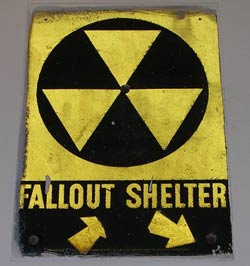
By Alexandra B. Hall, The National Interest, 9/6/21
Ploughshares Fund’s Roger L. Hale Fellow, Dr. Doreen Horschig, has released a new interactive report “The Biden Administration’s Nuclear Posture Review: New Policies to Prevent Nuclear War.” This report highlights the history of the Nuclear Posture Review (NPR) and urges the Biden Administration to not only follow through on its campaign promises in regards to nuclear nonproliferation but asks Biden to “be bolder than his predecessors” to change the status quo on U.S. nuclear weapons policy.
On the latest episode of Press the Button, Horschig and her co-host Tom Collin discuss what President Joe Biden should address in the NPR. As Horschig explains, the NPR started in 1994 under President Bill Clinton and was developed to ensure that each administration makes clear their objectives and goals regarding nuclear security. Over the past four administrations, Horschig explains that “there has been a great degree of continuity in U.S. nuclear strategy even as nuclear forces and force posture have evolved significantly over that period.” She points out that across political party lines “we have had no review make a serious commitment to reducing the role of nuclear weapons in the foreseeable future.”
Looking at the Obama and Trump administrations, both expanded nuclear weapons modernization programs. While President Barack Obama had ambitious goals at the outset to limit the role of nuclear weapons in security policy, Horschig explains that he was not able to achieve them all. She states that President Biden now has the chance to “make his more progressive nuclear security agenda happen.”
Horschig dives into Biden’s “long-standing views to reduce the role that nuclear weapons play in U.S. security policy, to decrease the likelihood of nuclear war, and to oppose the development of unneeded new nuclear weapons.” She points out that “we have him on record as a senator, as vice president, and as a presidential candidate, when he has consistently promoted a more limited role [for nuclear weapons], and the NPR now gives him an opportunity to really follow through on his words.”
Up till now, U.S. nuclear policy has been focused on addressing the very unlikely threat of an intentional nuclear attack. Horschig argues that the “Biden NPR should be based on the overarching goal of preventing nuclear warfare,” but through the lens of “reducing the risk of accidental war.” This pivot in policy would allow the administration to address the greatest risk of nuclear war—an accidental attack due to “human error or false alarm, or miscommunication.” In the report she outlines that since the beginning of the cold war until today, these errors have in fact been more likely to lead to nuclear war than any credible threat of an actual nuclear attack….
Read full article here.